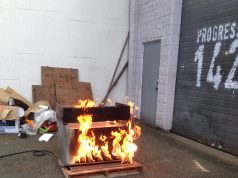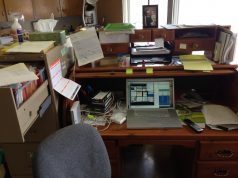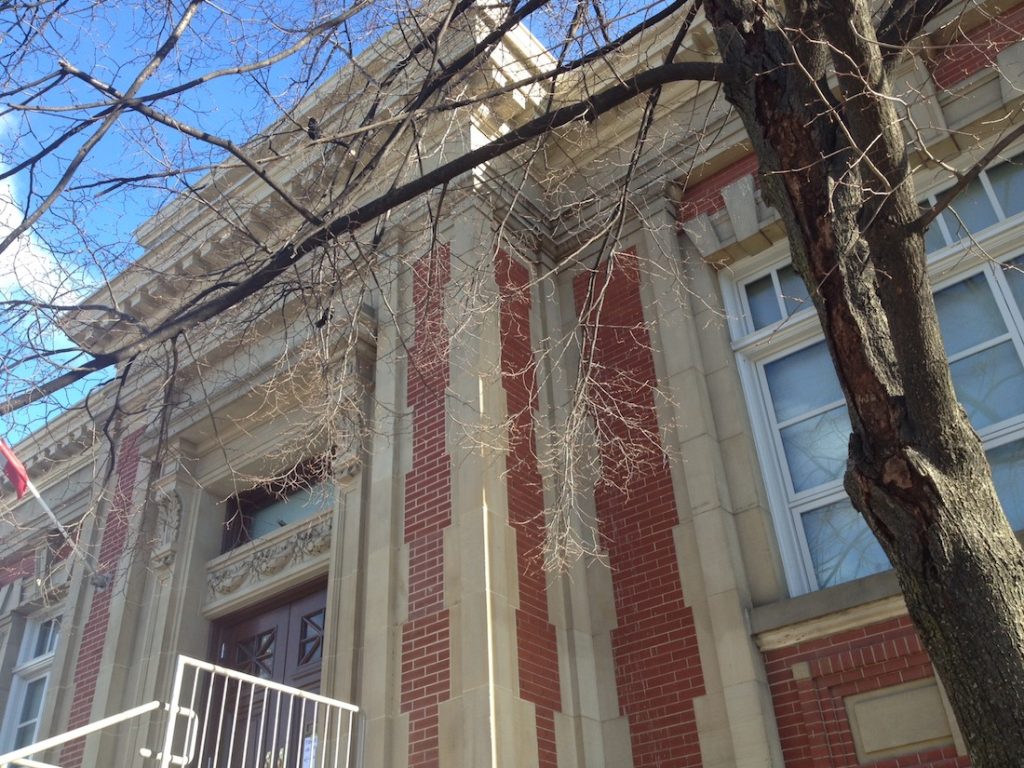
I was in the unheated-until-mid-January, sometimes infested, crowded, old Theatre Centre office working on The Freefall Festival when news arrived that key public funding had been secured for a new home in The Carnegie Library down the street.
It was the moment things became incredibly real. Years of smoke and mirrors were going to turn into steel and concrete. The Theatre Centre, which in its various homes seemed defined by impermanence, was about to become a permanent, integral institution in Toronto‘s cultural landscape.
It’s impossible to separate that the development of Praxis Theatre with this place – or more accurately: this idea, which has been housed in many places. It was home to our first show, our first professionally-produced show, and was where we premiered our most produced show. Freefall 2012 was the first time an artistic director asked me to curate performance, and my article for The Source was the first time someone paid me to write about theatre. It’s difficult for me to imagine what my life as a theatre artist in Toronto would have been like without it.
This is less about access to resources, than perspective and understanding about why I was making the work I was making. When Praxis began, we mostly adapted works of literature for the stage. It seemed a worthy goal, and was how I learned to direct plays. Slowly though, it didn’t seem compelling enough of a reason to live the precarious life of a theatre artist in Toronto. I think Theatre Centre saved me from putting my energies into something other than theatre, by giving me the tools to understand how to keep creating work that was meaningful to myself.
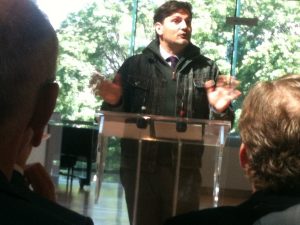
I’m pretty sure no one associates us primarily with literary adaptations anymore. Slowly, under the indirect, never prescriptive, non-linear influence of AD Franco Boni (as well as GMs Cathy Gordon and Roxanne Duncan), Praxis has turned into a company that has a vocal political perspective and willingness to experiment with new forms. This confidence that it is not just okay, but necessary, for artists to speak up for social justice and risk failure in their practice, is what we have gained over the last decade of our various associations with The Theatre Centre.
This is why although it is mind-blowing that Theatre Centre finally has a permanent home, it will remain at its essential core an idea. It is up to the artistic leadership of a company to define that idea precisely at any given time, but I will venture that part of this idea is that politically challenging and artistically compelling works are not mutually exclusive.
This is probably not a newsflash to fans of Brecht, Soyinka, Churchill – heck most of our best dramatists. But to consider how Franco Boni has embodied this notion as an Artistic Director now that this building is a reality is a bit mind-bending. Consider two core elements of the given circumstances of being an Artistic Director in Toronto for the past decade:
1
It has been a terrible time for public and private investment in the arts. Recession and a slew of regressive governments have meant major cuts and basically no new money for local artists. Think for a moment about Harper and ‘Ordinary Canadians’, Don Cherry after Ford was elected, SummerWorks, Rhubarb, Canadian Conference for the Arts. It’s been a dangerous, complicated time to be running an arts institution. People are watching and there are consequences for those that fall out of line.
2
Is there a performance venue more associated with dissent and social justice than Theatre Centre? Not only has it produced work by ATSA, Cape Farewell, Volcano, Bluemouth, and Liza Balkan’s shocking piece on police brutality Out The Window, to name a few; it has also been home to numerous Wrecking Balls, each of the Civil Debates, and amongst other organizing meetings was where Department of Culture began with a packed event led by Naomi Klein.
That 1 + 2 = Multimillion dollar state-of-the-art heritage building and permanent home – it almost doesn’t compute. How is this even possible? Am I dreaming as I write this? It contradicts everything I understand about this era. It is why this article has been in my head for two years, because I have been fascinated with what this means: Success is possible without compromising values.
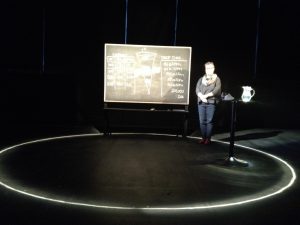
The conclusion I reach from this is ‘Community Organizer’ is also a part of the job description of an Artistic Director. The building to house the idea that is The Theatre Centre was powered in large part by a community that was determined the transformation on Queen West-West led to positive change for everyone who lived there. The community activist group Active 18 was the main focus of these efforts, and this has led to support from local politicians, which was leveraged into more support and so on. This happened because the theatre had an Artistic Director who had an inspiring vision about how the theatre could benefit the community and empower advocates for it.
Tomorrow, The Theatre Centre will open with the World Premiere of Sea Sick by Alanna Mitchell. The play came out of the keynote speech Mitchell made about the crisis caused by the desalination of our oceans when Franco and I co-curated FreeFall in 2012 after he met her through the Cape Farewell initiative to bring together climate change experts and artists. It speaks to the crazy logic of that place that the one non-piece of ‘performance’ we brought to that festival would go on to have the biggest theatrical production.
But it is significant for an even bigger reason: Sea Sick will be the first piece of theatre directed by Franco (with longtime mentee Ravi Jain) as Artistic Director of The Theatre Centre. After a decade of figuring out how to create space for other artists, a play Franco directed will be the first thing to happen on this new stage. It wasn’t planned that way, but construction deadlines have made it that way. To write he has earned it seems neither a bit trite, so I will just write what I think many of my colleagues think when they consider what has been accomplished here:
Hell Yes.






